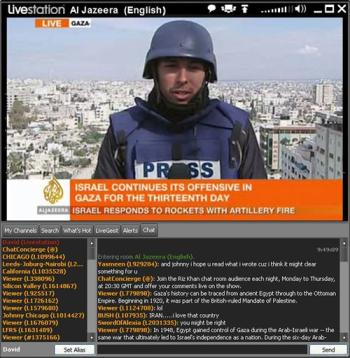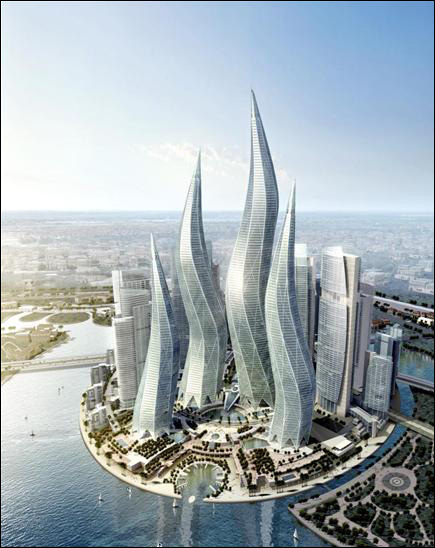Yesterday’s decision by one of Egypt’s highest courts to ban porn sites is yet another example of the government’s losing battle to control the thoughts and actions of its people. 
The Administrative Court, based in Cairo, has ordered the government to block the sites in response to a case brought by Muslim lawyer Nizar Ghorab, who filed the case under his own initiative.
He welcomed the decision today, saying: “Thank God we won. Now the government should stop these electronic dens of vice immediately.”
Arguing in court, Ghorab cited the case of a senior civil servant and his wife who were arrested last year for holding “swinger” parties after soliciting other parties over the internet.
Although the decision can be appealed to a higher court, Ghorab believes that this is unlikely as it would put the government in the uncomfortable position of being seen to protect pornography.
“Freedoms of expression and public rights should be restricted by maintaining the fundamentals of religion, morality and patriotism,” the AFP news agency quoted the court as saying in its ruling.
Freedom of speech has long been under fire in Egypt. The country has been held in a state of perpetual emergency rule since President Hosni Mubarak’s National Democratic Party came to power in 1981. An estimated 18,000 people are in prison under Egyptian law, which allows police to arrest people without charge, while media organisations are kept firmly under the yoke of state control.
This curtailment of civil freedoms on the street has led many young Egyptians to turn to the virtual highway. According to government figures from 2007, Egypt has around 12m internet users, one in nine of the country’s population, making it the largest online presence of all the Arab nations.
 Nine per cent of this – around 800,000 people – use the social networking site Facebook, which has become a powerful voice for the country’s youthful population. Epitomised in the April 6 Youth Movement, a political group created during last year’s protests which now has more than 700,000 members, social networks are taking on a political face.
Nine per cent of this – around 800,000 people – use the social networking site Facebook, which has become a powerful voice for the country’s youthful population. Epitomised in the April 6 Youth Movement, a political group created during last year’s protests which now has more than 700,000 members, social networks are taking on a political face.
Within hours of the first bombings of Gaza by Israel in January, around 2,000 people had organised a n ad hoc demonstration using Facebook and taken to the streets, many of them voicing their anger at their own government for what they saw as collusion with Israel.
In this light, the Egyptian court’s ruling to try to censor the internet is a cynical and hollow attempt to extend its waning power to the untapped domain of the internet. Pornography may often typify the exploitation of society’s most vulnerable and expolited, yet it also represents the power of freedom of expression in the face of moral censure from mainstream society.
Love it or loathe it, porn is a barometer to a country’s politics. And the more the Egyptian government tries to restrict the freedoms of its people in the name of “religion, morality and patriotism,” the closer it will come to its own demise.
 Saberi’s plight has brought world-wide condemnation of the Iranian government, after she was sentenced to eight years in prison in a closed trial that lasted only one hour. A reported 225 people have signed up to the “Free Roxana” campaign, after the Northwestern graduate started her own hunger strike in protest on April 21.
Saberi’s plight has brought world-wide condemnation of the Iranian government, after she was sentenced to eight years in prison in a closed trial that lasted only one hour. A reported 225 people have signed up to the “Free Roxana” campaign, after the Northwestern graduate started her own hunger strike in protest on April 21. war zones around the world, most recently during Georgia’s war with Russia in August of last year.
war zones around the world, most recently during Georgia’s war with Russia in August of last year. 

 I could have written an article stating that Britain, the human rights champion, not wanting to get its hands dirty, had resorted to secretly outsourcing torture to Third World states under the guise of rendition by allowing up to 170 so called CIA torture flights to use its bases.
I could have written an article stating that Britain, the human rights champion, not wanting to get its hands dirty, had resorted to secretly outsourcing torture to Third World states under the guise of rendition by allowing up to 170 so called CIA torture flights to use its bases.



 The Iraqi government have long been voicing their committment to diversifying the country’s oil-dependent economy into agriculture and trade. More than 1,000 of the dispossessed “intellectuals” that left the country in the wake of the 2003 invasion have reportedly returned to the country over the last year and officials claim that there has been much interest in construction contracts from China, Jordan and Iran.
The Iraqi government have long been voicing their committment to diversifying the country’s oil-dependent economy into agriculture and trade. More than 1,000 of the dispossessed “intellectuals” that left the country in the wake of the 2003 invasion have reportedly returned to the country over the last year and officials claim that there has been much interest in construction contracts from China, Jordan and Iran.




 The group urged members to strike, wear black, and write “No” to Mubarak on their money.
The group urged members to strike, wear black, and write “No” to Mubarak on their money. Fattah is not alone. Others, such as Noha Atef, who runs the
Fattah is not alone. Others, such as Noha Atef, who runs the
Comment is free but outrage is easy
Published February 23, 2009 Journalism , World affairs 2 CommentsTags: blogging, Comment is Free, ethics, Guardian, India, L'Oreal, lightening cream, racism
The problem with blogging – and it is a trap I fall into myself – is that it encourages extremes of opinion.
For all the blurb about social networks and the global community, posting in the blogosphere can sometimes feel like shouting into a void and listening for an echo, which in the end only makes you shout louder.
Even so-called professionals can be guilty of this sin. Yesterday, on the Guardian’s Comment is Free section, I read a post by one of their NY-based freelancers, Shahnaz Habib, on the lack of ethics in multinationals.
She writes:
Although she admits that “all beauty advertising caters to culturally relative neuroses of what is beautiful”, Habib still believes selling whitening cream is tantamount to promoting racism.
This, she tells us, proves the moral corruption of multinationals that claim to “think globally and act locally” but in fact are merely exploiting the vulnerable people of a developing country for profits.
And so it might seem at first glance. When I first saw lightening creams lining the shelves of supermarkets in India last summer, my first reaction was exactly the same – outrage. But then I started to think about it.
If lightening cream caters exclusively to Asian markets and is deplored by the west, how can it be said that it is imposed upon them? Multinationals may have the GDP of small countries and wield more power than many of them, but they cannot change social and cultural norms.
You can argue that, in India specifically, they are perpetuating the legacy of racism left by the British. But the caste system, India’s very own home-grown brand of prejudice, existed long before the British East India Company had even set sail.
Surely trying to impose western standards of political correctness on the Indian market shows a far more colonial attitude than catering to their “culturally relative neuroses of what is beautiful”. Is selling fake tan or promoting sunbeds perceived as racist in the UK?
This, I believe, is the danger of blogging: it encourages posts that spring directly from gut reaction. Habib is clearly not stupid or arrogant or morally imperious. She was seduced by the medium into writing something that, though researched and articulated with care, ended up as a self-defeating tirade.
But at least it’s a consolation to know that when comment is free, comments there will be – 88 and counting underneath Habib’s article.